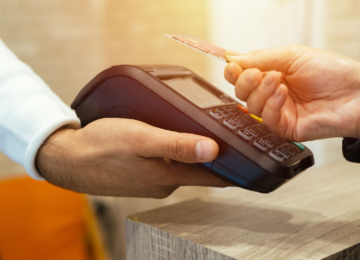The U.S financial health pulse report 2020 reported that according to the top-line data only 33% of Americans are financially healthy but two-thirds remain financially vulnerable or copying. The reports suggest that inequities are persisting and amplified by the economic fallout and additional changes in consumer behaviors due to the pandemic.
Furthermore, the key points of the study suggest people earning less than $30,000 did not see any average improvements in income or savings.
Out of financially healthy Americans, a significant gap was noticed between men and women. According to the report, compared to the 40% of men only 28% of women were financially stable.
The overall report of American’s financial health sends shivers down the spine. We are not at a good place and we desperately need to take measures. Taking small steps can make a lot of difference on an individual level.
Four Steps To Take For Final Security
Say Bye To Credit Cards:
Capitalism has embedded this concept in our minds that it is okay to buy now and pay later. Plus the companies bribe us into spending more than our purchasing power by offering points, air miles, and free meals. So are we truly being rewarded or saving from these? Absolutely not!
Credit cards are a scam that is portrayed as a convenience but is actually a masked nightmare of debts. Credit cards allow you to spend more than you can afford. Adding the interest rate to that means you would have to spend a lot more than you earn.
Credit cards are one of the reasons for your failed financial health. Cancel your credit cards and pay with cash to stay on track with your balance.
Emergency Funds:
Lack of emergency funds is one of the reasons that we are often in debt. While most people have self-control when it comes to retail therapy with a credit card. Unfortunately, they have to give in when it comes to emergencies.
Emergency funds in the form of cash are necessary to avoid the use of credit cards as much as possible. Start an emergency fund as low as $1000-$1500 and keep on adding. An ideal amount of emergency funds would be that your expenses up to 3 or 6 months could be covered.
Don’t stress out tho! Start as low as you can.
Get Done With Your Debts:
This may sound like an obvious suggestion but hear us out. Most people struggle with paying debts because the debts are neither aligned nor organized.
We know you have to pay it all off eventually but paying off the smallest debt first, makes a difference. The reason behind it is that when you start clearing out all the smaller debts of the list, it gives you some air of freedom that yes you are getting somewhere.
Secondly, big debts mean a lot of money and time to pay them off. Focusing more on the big debts will pile up your smaller debts as well.
List your debts from the smallest to biggest (by amount and priority), start paying off smaller ones. Once you are halfway done paying the smaller ones, start paying off the big ones in small amounts.
Say No to Instant Gratification:
Instant gratification mostly refers to you maintaining a standard lifestyle that you can afford sometimes only. Instant gratification is all those unnecessary purchases you make living from one check to another.
This point is mainly about self-control and choosing alternatives that work the same way but are cheaper. Choosing long-term commodities instead of instant gratification would help in reaching a financial security state.
It’s good to treat yourself once in a while but on most days keep that money intact.
Track Your Score:
While you might not be spending much on luxurious commodities or even the basic ones. Keeping track through apps like Guardian Wealth management can help plan through financial instability. It is necessary to track what amount you spend on your expenses and debts.
Lastly, gaining financial security today’s economy is hard yet not impossible. The whole process requires gradual savings and self control. Small steps make big changes.











